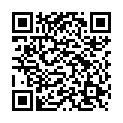|
|
|
| Module code: MAIM-291 |
|
|
- |
|
6 |
| Semester: according to optional course list |
| Mandatory course: no |
Language of instruction:
German |
Assessment:
Term paper with presentation (can be repeated annually)
[updated 30.01.2020]
|
MAIM-291 (P450-0392) International Management, Master, ASPO 01.10.2016
, optional course
MAIM-291 (P450-0392) International Management, Master, ASPO 01.10.2020
, optional course
WIMAScWPF-FÜ9 Industrial Engineering, Master, ASPO 01.10.2014
, semester 2, optional course, general subject, course inactive since 10.02.2020
|
|
The total student study time for this course is 180 hours.
|
Recommended prerequisites (modules):
None.
|
Recommended as prerequisite for:
|
Module coordinator:
Prof. Dr. Stefanie Jensen |
Lecturer:
Lecturers from the Europa Akademie Otzenhausen
Lecturers from the faculty
[updated 10.12.2018]
|
Learning outcomes:
Learning outcomes:
This module enables students to fully understand the many facets of their host country (economy, domestic and foreign policy, social and cultural situation, etc...) and to reflect on the relationships between these facets. The situation in the host country will be compared with the situation in the European Union with regard to the above and other aspects. This allows students to compare the situation of an individual country with that of a group of states within the EU, given that European countries are transferring more and more competences to the EU in important policy areas, from jurisprudence and economic policy to consumer and environmental protection.
After successfully completing this module, students will be able to:
prepare intensively for the different circumstances (economy, politics, social affairs, culture, etc.) in their host country and combine the information received about different fields from people with different backgrounds to form an overall picture of the respective host country, to critically analyze this information and to adopt a position of their own.
understand and reflect on the EU´s position on selected topics such as the monetary union, external and economic relations, energy policy, climate policy, and law-making. Students will study and learn to appreciate the differences in the positions and requirements of the host country and the EU.
develop and present complex issues from heterogeneous subject areas in English (if necessary without the aids typically available in lecture halls).
work in mixed groups with foreign students. After completing this module, students will have improved their social and language skills through meetings with students and representatives from their host country. They will also have demonstrated a high degree of commitment, motivation, independence and creativity.
In addition, students will learn to prepare for business visits and meetings abroad in a structured manner.
[updated 10.12.2018]
|
Module content:
Study trip to the foreign partner university including lectures, workshops and discussions on economics, domestic and foreign policy, society, as well as special topics from the host country and visits to companies and institutions in the vicinity of the partner university or the region visited.
Study trip to the European Academy Otzenhausen covering current European issues (e.g. financial and economic policy, external economic relations (e.g. WTO, trade agreements, foreign policy, environmental policy, consumer protection, refugees), as well as the importance of selected central European institutions.
Creation of a term paper and presentation in English on a specific topic
Intercultural communication skills and their use in a team
[updated 10.12.2018]
|
Teaching methods/Media:
Lectures/talks, interactive workshops, group work, short impulse presentations, exchange with foreign students, sightseeing.
[updated 05.03.2020]
|
Additional information:
This module will take place within the framework of two study trips (to Mexico and to Otzenhausen); attendance is compulsory for all on-site events and for the preparatory workshop.
[updated 10.12.2018]
|
Recommended or required reading:
To be announced within the course.
[updated 10.12.2018]
|


